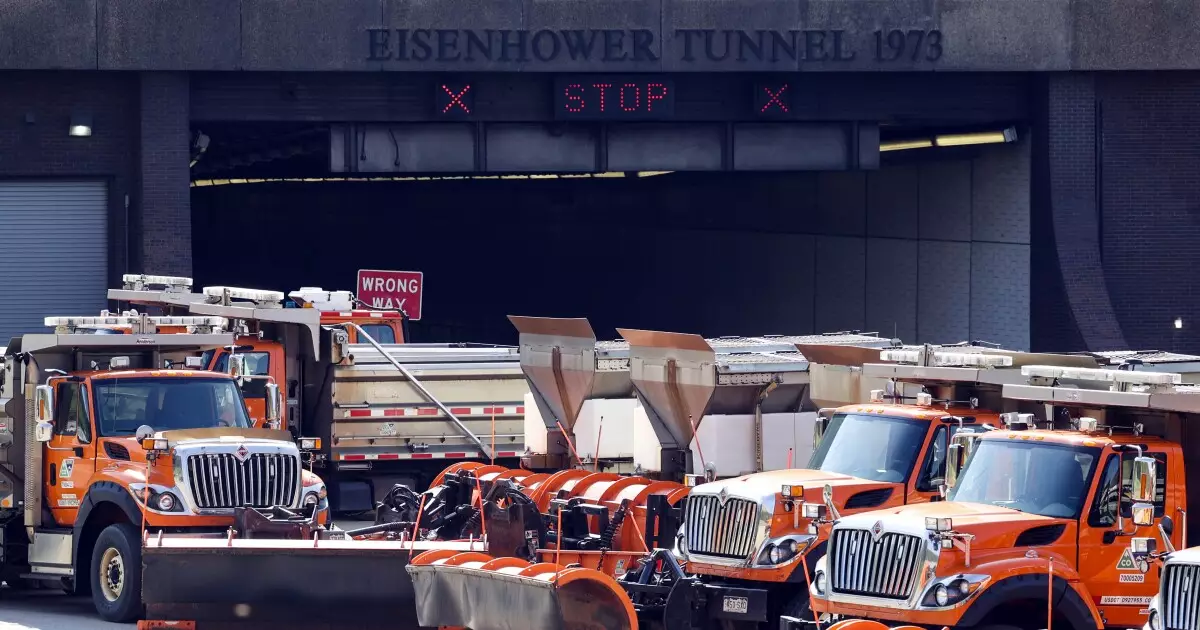The recent announcement from Colorado’s Statewide Bridge and Tunnel Enterprise (BTE) to sell $212.45 million in revenue bonds is a concerning example of how government-managed entities can entangle itself in a legal web while purportedly addressing pressing infrastructure needs. These bonds, supposedly backed by revenue from bridge safety surcharges, are precariously situated between robust fiscal needs and potential legal pitfalls tied to the state’s Taxpayer’s Bill of Rights (TABOR). The implications of this bond sale are not just financial; they suggest an ongoing struggle for fiscal integrity and voter-approved mandates, raising ethical questions surrounding government transparency and responsibility.
It’s important to recognize that the fees collected—currently projected to reach nearly $116 million by fiscal 2025—are contingent upon the resolution of a lawsuit from Americans for Prosperity and other plaintiffs. They argue that the state has crafted a loophole to circumvent TABOR by labeling taxes as “fees.” This is indicative of a broader issue concerning how states attempt to bypass constitutional limitations on revenue generation. While the BTE argues the legality of its fees under state enterprise definitions, the plaintiffs’ claims could expose a fundamental problem in how Colorado governs its fiscal responsibilities.
The Echoes of TABOR: A Constitutional Challenge
TABOR stands as one of the most restrictive tax and spending laws in America, limiting how much the state can collect and expend. Critics of the amendment, including lawmakers from the Democratic-controlled legislature, assert that the chronic underfunding caused by TABOR hinders effective governance. With the state facing a more than $1 billion shortfall in the upcoming fiscal budget, the stakes have never been higher for lawmakers who want to access funds without what they regard as unreasonable constraints.
The paradox lies in the enterprise model the BTE adopted—designed to operate with the autonomy of a business while evading the voter approval required for new taxes. This situation raises alarms for those who advocate for limited government intervention and fiscal responsibility. If the BTE successfully sells its bonds and uses somewhat controversial revenue streams, it may embolden other state entities to pursue similar evasive maneuvers, undermining the very essence of TABOR—a mechanism designed to keep the government accountable to its constituents.
The Future of Surcharges and Funding
While the BTE has a history of navigating disputes over its revenue streams, including the successful defense against a prior lawsuit aiming to dismantle its surcharge revenue, one must question whether such circumvention is sustainable. The district’s revenue bond structure relies heavily on bridge safety surcharges imposed on vehicle registrations—ranging between $13 and $32, depending on weight. Although this model has stabilized funding so far, the potential for future legal challenges places this structure at risk.
Moreover, the projected increase of an additional impact fee on motor fuels, which will rise from 2 cents per gallon to 8 cents by 2028, further complicates the issue. Legislators should be cautious of creating a reliance on these fluctuating revenues, especially if they can be legally contested, as these variables threaten the predictability and safety of funding for crucial infrastructure projects.
The Ratings Game: A False Sense of Security
The recent upgrade of bond ratings from firms like S&P and Moody’s might paint a rosy picture of financial health for the BTE. However, these ratings, while indicating stable coverage ratios and projected revenue growth, fail to address the underlying risks these bonds carry—particularly in light of ongoing litigation. The numbers may look appealing on paper, but this situation warrants skepticism. It’s troubling that a state enterprise can issue debt while systematically avoiding the full democratic process that ensures taxpayer consent.
Investors, blinded by seemingly strong ratings and forecasts of population growth, might overlook these red flags. The reality is that these increased fees and projected revenues are not guaranteed. The very existence of market demand for these bonds hinges on legal outcomes that are far from certain.
The reliance on Assured Guaranty for bond insurance offers a semblance of stability, yet it also imposes an expectation that the enterprise will meet its obligations without fail. The realities of managing public infrastructure funding in tandem with legal constraints may expose serious vulnerabilities, leading to an increased risk of default in the long term if circumstances shift.
A Call for Better Governance
Amidst the discussions around revenue and infrastructure, it is paramount that Colorado reassesses how its laws impact fiscal governance. Instead of relying on dubious legal loopholes and questionable revenue streams, lawmakers should uphold the principles of accountability and transparency that American taxpayers expect. There has always been a better path that lies in engaging constituents in the decision-making process while maintaining fiscal prudence.
As Coloradans consider their changing political landscape, they must demand governance that respects the will of the people and adheres to a responsible fiscal framework. Failure to heed these warnings could lead the state down a slippery slope of ever-increasing fees and a disengaged electorate, ultimately forsaking the very communities they aim to serve.

